Professors
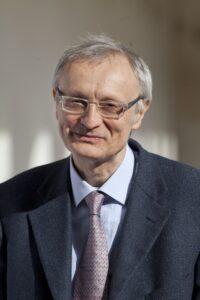
Gianmario Borio is professor of Musicology at the University of Pavia and director of the Institute of Music at the Fondazione Giorgio Cini, Venice. In 1999 he was awarded the Dent Medal by the Royal Musical Association. In 2013 he was Distinguished Visiting Professor at The Italian Academy for Advanced Studies in America. He is member of the Academia Europaea, corresponding member of the American Musicological Society, and corresponding fellow of the British Academy. He is the director of the book series Musical Cultures of the Twentieth Century (Routledge, London) and the online-journal Archival Notes. His publications deal with several aspects of the music of the twentieth century, with the history of musical concepts and the theory of musical form.

Vera Cantoni is a postdoc researcher at Università di Pavia. Her main research interests are contemporary British playwriting, the relationship between orality and drama, the stage history of Shakespeare’s plays. She has been on the pre-selection committee of the playwriting prize Premio Riccione per il Teatro.
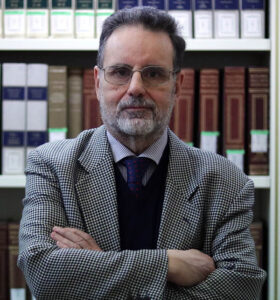
Fabrizio Della Seta Full Professor in the Dipartimento di Musicologia e Beni culturali of the Università di Pavia in Cremona, in 2001-2020 he was responsible of the PhD programs in Musicology. In 2009 he was visiting professor in the Music Department of the University of Chicago. He is co-General Editor of the “Edizione critica delle opere di Vincenzo Bellini” (Ricordi), chair of the Centro studi belliniani, Catania, and of the “Edizione nazionale dei carteggi e dei documenti verdiani”, member of the Editorial Board of “The Works of / Le opere di Giuseppe Verdi” (The University of Chicago Press, Ricordi). He is a member of the Academia Europæa, corresponding member of the Istituto Lombardo Accademia di Scienze e Lettere, and of the Arcadia – Accademia Letteraria Italiana. He received the international award “Luigi ed Eleonora Ronga” for musicology, history of music and musical criticism of the Accademia nazionale dei Lincei. His critical edition of I Puritani (Ricordi 2013) received the “C.V. Palisca Award” 2014 of the American Musicological Society for the best musical edition.
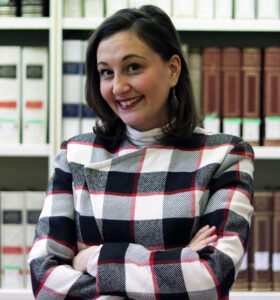
Maria Jennifer Falcone is currently a research fellow in Latin Language and Literature at the Department of Musicology and cultural Heritage of the University of Pavia (based in Cremona), and she obtained a full qualification for the role of Associate Professor in the fields of Classical and Late-Antique Philology and Latin Language and Literature. Her research interests include the Latin theatre (above all during the Republican period) and the literature of Late Antiquity. She is author of a commentary on the fragments of archaic tragedy regarding the myth of Medea (Medea sulla scena tragica repubblicana. Commento a Ennio, Medea exul; Pacuvio, Medus; Accio, Medea sive Argonautae, Tübingen 2016) and of several articles on authors and texts of the Latin literature.
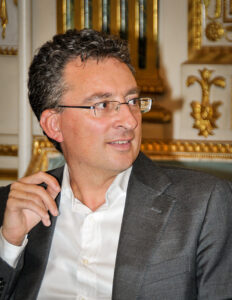
Fabrizio Fiaschini is Associate Professor in Performing Arts at the University of Pavia, where he teaches Theatre and Performance Studies and Performance and Stage Writing. He has researched aspects of representation in the late medieval, Renaissance and Baroque periods from a historical and philological perspective, with a particular focus on the Commedia dell’Arte and on Giovan Battista Andreini’s figure (The “incessabil agitazione”. Giovan Battista Andreini between theatre profession, literary culture and religion, Pisa, Giardini, 2007), in the broader framework of the relationships between entertainment, literary culture and academic life (The Signs of Performance, Savona, Sabatelli, 2000; Margherita, Alberto and Isabella. Triumphal entries in Pavia in 1599, Novara, Interlinea 2012). Regarding the twentieth century, he edited the critical edition of the unreleased sections of Mario Apollonio’s History of Italian Theatre (Milan, Rizzoli, 2003) and developed analyses on the contemporary scene, with particular attention to performance practices, social theater and drama therapy.
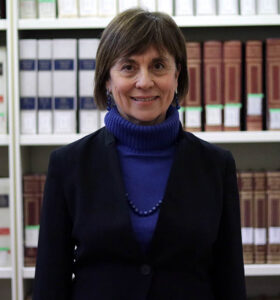
Michela Garda is a professor for music aesthetics and sociology at the University of Pavia, Department of Musicology and Cultural Heritage in Cremona. She scrutinized some aesthetical key concept in her L’estetica musicale del Novecento. Tendenze e problem, Carocci 2007. Her current research interests focus on performativity and the voice. About this topic she edited (with Eleonora Rocconi) Registrare la performance. Testi, modelli e simulacri tra memoria e immaginazione, Pavia University Press 2016 and (with Serena Facci) The Female Voice in the 20th Century, Routledge 2021. Over the last years, she investigated some threads in the Wagnerian theoretical writings related to voice without words, Gesamtkunstwerk, and myth.
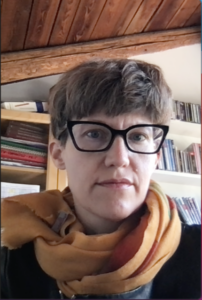
Anna Giust is associate professor of Russian Studies at the University of Verona and teaches Music Theory and History of Musical Instruments at Ca’ Foscari University, Venice. Her main field of research is Russian music, notably opera. She has authored two monographs: Ivan Susanin di Catterino Cavos, Un’opera russa prima dell’opera russa (Turin 2011) and Cercando l’opera russa, La formazione di una coscienza nazionale nel teatro musicale del Settecento (Milan, 2014), as well as several articles on Russian opera from the 18th to the 20th century. Her research interests include musical nationalism, inter-semiotic translation, the circulation of music to and from Russia and the reception of Italian opera in Russia.
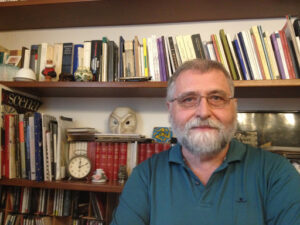
Gerardo Guccini teaches Dramaturgy and Theories and Techniques of Dramatic Composition at the University of Bologna. In 1995 he founded with Claudio Meldolesi the half-yearly journal “Prove di Drammaturgia. Review of theatrical investigations”. From 2002 to 2015 he was Scientific Director of CIMES (Center for Music and Entertainment – University of Bologna). In 2012, he founded with Matteo Casari the online journal “Performance arts: horizons and cultures” (AMS Acta). Since 2018 he is Scientific Director of the La Soffitta Theater Center. His research concerns eighteenth century theatre, the spectacular aspects of opera, narrative theatre and contemporary dramaturgy, with particular reference to the textual element. Guccini has collaborated as a dramaturg with Marco Paolini, Marco Martinelli, Elena Bucci and Marco Sgrosso.
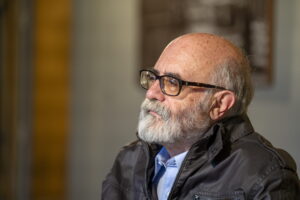
Guillermo Heras, playwright and man of the theater, is one of the most important Spanish directors of today. He has directed the Centro Nacional de Nuevas Tendencias Escénicas, the Tábano company and the Iberescena program; awarded the Premio Nacional de Teatro de España, he is currently director of the Muestra de Teatro Español de Autores Contemporáneos in Alicante and president of the Asociación de Directores de España (ADE).
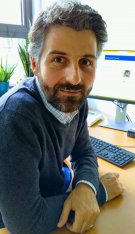
Teodoro Katinis is professor of Italian literature at the University of Ghent, where he studies Renaissance literature and the history of Italian philosophy, and a founding member of the Dante Alighieri Society – Gent in which he organizes and carries out activities for the promotion of Italian culture in Belgium. After a PhD in Philosophy at the Roma Tre University, Katinis taught several years in the high schools of Rome and then moved to the USA for a second PhD in Italian Studies at Johns Hopkins University. In 2015 he returned to Italy with a Marie Curie fellowship at the Ca ‘Foscari University, Venice, interrupting it after a year to take the chair in Ghent. Katinis publishes contributions on various topics and authors of pre-modern Italian literary culture. His most recent book (Sperone Speroni and the Debate over Sophistry in the Italian Renaissance, Brill 2018) paved the way for the study of the fortune of ancient sophistry in 16th-century Italy.
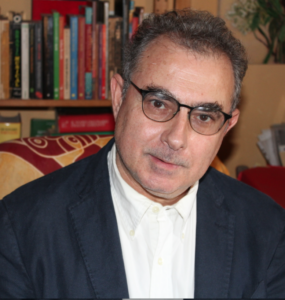
Stefano La Via has completed his musicological studies at the Universities of Rome “La Sapienza” (Laurea in lettere degree) and Princeton (MFA, PhD in Musicology). He is currently Associate Professor at the University of Pavia, Department of Musicology and Cultural Heritage, Cremona, where he teaches “Storia della Poesia per musica” and “Storia della Canzone d’autore”. He has carried out research and published many essays on the relationship between poetry and music in various historical periods, from Medieval times to nowadays, with particular reference to 16th-century Italian Madrigal, Baroque Opera, Popular Song in Europe, USA and Brazil. Among his published books: Il lamento di Venere abbandonata. Tiziano e Cipriano de Rore (Libreria Musicale Italiana 1994); Poesia per musica e musica per poesia. Dai trovatori a Paolo Conte (Carocci 2006); Chico Buarque, Canzoni (Pavia University Press 2014); Monteverdi’s Venetian Operas: Sources, Performance, Interpretation (ed. Stefano La Via ed Ellen Rosand, Ashgate 2021: in print).
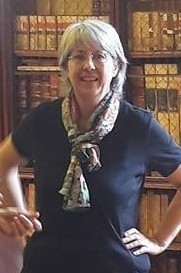
Donatella Mazza Associate Professor of German Language (Università di Pavia). Her main research fields are the history of German, in particular the syntactic and lexical innovative aspects of periods of change (age of the Reformation, Romanticism, historical avant-gardes); the investigation of dramatic and poetic texts (e.g. German Expressionism, contemporary theatre) from a linguistic perspective; innovative didactic approaches to language acquisition (theatrical training).
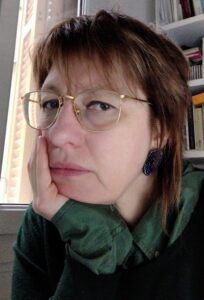
Simona Morando is associated professor at the University of Genoa. She teaches Italian Literature and Italian Drama. Her research fields are focused on the XVIth and XVIIth cent. Literature and theatre (Torquato Tasso’s Aminta, Giovanni Battista Andreini’s works, pastorl plays, tragedies) and on the XXth cent. poetry and novel, with specific attention to the works of Giovanni Giudici, Eugenio De Signoribus and Francesco Biamonti.
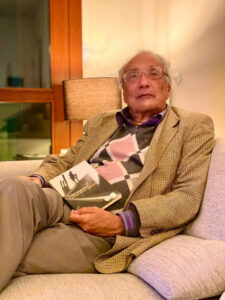
Guido Paduano is Professor Emeritus of Classical Philology at the University of Pisa. He studied ancient theater and Greek and Latin epics, to which he dedicated commented translations (among others Menandro, Mondadori 1980; Sophocles, Utet 1982; Odyssey, Einaudi 2010; Virgilio, Bompiani 2016), specialized studies and monographs. He has also dealt with comparative literature (Lunga storia di Edipo Re, Einaudi 1994; Edipo. Storia di un mito, Carocci 2008; Follia e letteratura, storia di un’affinità elettiva: dal teatro di Dioniso al Novecento, Carocci 2018), theater and literary theory (Il comico, con Concetta D’Angeli, Il Mulino 1999; Il testo e il mondo, Bollati Boringhieri 2013; Teatro. Personaggio e condizione umana, Carocci 2020), musical theatre, with several collections of essays, short monographs on Verdi and Puccini e, lastly, L’anello del Nibelungo. Parola e dramma, il Mulino 2021.
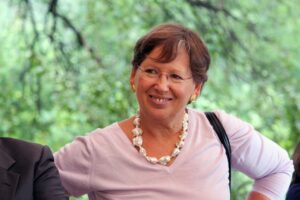
Marzia Pieri since 2002 has taught Performing Arts at the Department of Historical Sciences and Cultural Heritage of the University of Siena; she previously taught in Trieste and Verona. She is a former Fellow of the Harvard University Center for Italian Renaissance Studies, a member of various international research teams and of various scientific committees of journals. Her objects of research include theatre history from the Middle Ages to the contemporary age, philology of dramaturgical texts, publishing history on performance and actors, multimedia and entertainment, dramaturgical and philological theories. Among his volumes of Renaissance material: La scena boschereccia nel Rinascimento italiano (1983); La nascita del teatro moderno (1989); Gl’ Ingannati degli Accademici Intronati di Siena (2009); Lo Strascino da Siena e la sua opera poetica e teatrale, (2010). She has also studied the eighteenth century, with particular reference to Martello, Alfieri, Gozzi e Goldoni; her publications in such area include Commedie di Goldoni, voll. 3, 1992; Il teatro di Goldoni, 1993; and the Marsilio critical editions for the Persian Trilogy (1997), The Scotsman (2006) and Artemisia (2015).
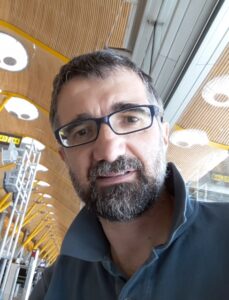
Paolo Pintacuda is Full Professor of Spanish Literature at the University of Pavia. Always with a strong philological approach, he mainly deals with literature from the Golden Centuries and the twentieth century; among his theatrical books, the critical editions of various baroque comedies stand out. He is Filippo, Giacomo and Matteo’s dad.
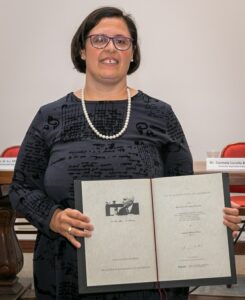
Elena Polledri teaches German and Austrian Literature at Università degli Studi di Udine. She is on the board of the Hölderlin-Gesellschaft; she is a speaker and a co-founder of its Italian branch and she is one of the general editors of the journal «Studia Hölderliniana» and of the TranLIT (LIT Verlag) book series. She is a scientific advisor for the Udine Austrian Library and the Vice-president of the Austrian Library Association. In 2017 she received the Ladislao Mittner prize for German Literature for her “scientific excellence and for her commitment to the expansion of Italian-German interrelations”. Her particular research interests are interculture, translations for the stage and theatrical productions, the relationship between literature and visual arts, music and philosophy, intertextuality, intermediality and the didactics of literature.
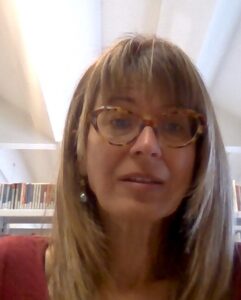
Laura Rescia teaches French Literature and Literary Translation at the Dipartimento di Lingue e Letterature Straniere e Culture Moderne, University of Torino. Her research focuses on seventeenth-century French drama and novels and on cultural exchanges between France and Italy in the same period. She is the author of several essays, published in Italy and abroad, and of the critical editions of tragedies by Pierre Corneille, Nicolas de Montreux, Alexandre Hardy, Charles Bauter. She is a member of international research groups and she is on the scientific board of the academic journal Studi Francesi.
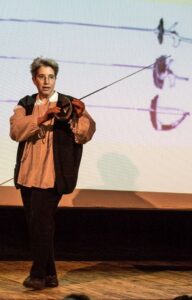
Angela Romagnoli Associate professor at the Department of Musicology and Cultural Heritage of the University of Pavia, she currently teaches History of Performance Practice, Musical Dramaturgy and History of Dance and Dance Music, and is president of the Degree Course in Conservation and Restoration of Cultural Heritage – PFP6: Musical Instruments; Scientific and Technical Instrumentation and Instruments (unique in Italy). She has also taught at the Carolina University of Prague and the University of Vienna. Her research focus mainly on Italian opera of the seventeenth and eighteenth centuries, on the recorder, on Italian musicians active at the court of Vienna and in Central Europe. She has always participated actively in the life of Italian and international cultural associations and institutions, collaborating with musical ensembles (Ensemble Zefiro, Bozen Baroque Orchestra, Academia Montis Regalis among others), associations and concert organizations (including Konzerthaus in Vienna, Festwochen in Innsbruck, Mantova Musicantica), educational institutions and cultural representations (including the Janáček Academy in Brno, University of Evora, Italian Cultural Institute in Prague), as a musicological consultant and organizer of cultural events. She is a member of the artistic direction of the Settenovecento Festival in Rovereto, of the board of the European Mozart Ways, and president of the scientific committee of the Early Music Center of the Ghislieri Foundation in Pavia.
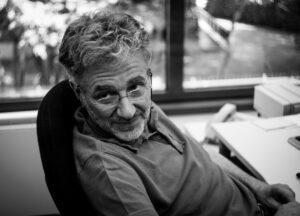
Emilio Sala is associate professor of musicology at the University of Milan. He serves as a member of several scientific and editorial boards, including those of the Fondazione Rossini (Pesaro), the Giacomo Puccini National Edition (Lucca) and the Critical Edition of the Works of Giuseppe Verdi (Chicago). Between 2012 and 2014 he was scientific director of the Istituto nazionale di studi verdiani (Parma) and editor of its journal Studi verdiani. He is editor of the series of musicological monographs “Le Sfere” (Ricordi) and has published many books as author and editor, among them The Sounds of Paris in Verdi’s “La traviata” (Cambridge University Press, 2013). His articles and essays about opera, melodrama and film music have appeared in several edited volumes and journals. Since 2020, together with Giorgio Biancorosso, he has been founding co-editor of the peer-reviewed journal Sound Stage Screen, published in English by the University of Milan.
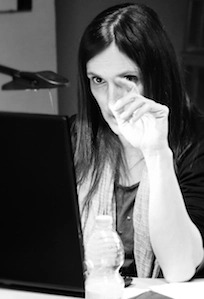
Federica Villa Full Professor of History and Criticism of Cinema and Documentary and Experimental Cinema at the University of Pavia, within which she also acts as the Rector’s delegate for Cultural Courses and Events. Her research interests have matured around post-war Italian cinema, with particular attention to the relationship between cinema and popular culture, to the ways of scriptwriting (Botteghe di scrittura per il cinema italiano, 2002) and to the contribution of some writers to the cinematographic work (Il cinema che serve. Giorgio Bassani cinematografico, 2010). Since 2013 she has directed the Self Media Lab Study Center.
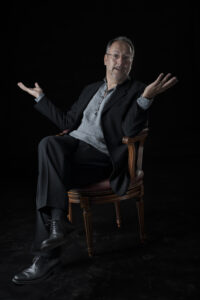
Stefano Vizioli, graduated with full marks and honors in piano, is an internationally renowned director. He has worked with conductors such as Muti, Abbado, Bartoletti, Mariotti, Gatti, Dantone and has directed works all over the world, from Milan’s La Scala to Chicago’s Lyric, from Venice’s Fenice to Beijing’s NCPA, from Buenos Aires’ Colon to Tokyo’s NNTT. Several of his productions are linked to the modern rediscovery of Baroque masterpieces, such as Cavalli’s Veremonda, Vivaldi’s Montezuma, Carafa’s I due Figaro, Cesti’s La Dori. His DVD productions include Don Pasquale, Il Trovatore, Rigoletto, Madama Butterfly, I due Figaro, Luisa Miller, Montezuma, Il Barbiere di Siviglia, La Dori. In the name of cultural diplomacy Vizioli has created transversal projects such as OperaBhutan, or Acis and Galatea by Händel in the heart of the Himalayas, and Japan Orfeo, a reinterpretation of Monteverdi’s masterpiece integrated with the Nōh theater and the Gagaku orchestra. He has collaborated, among others, with Ugo Nespolo, Gianni Dessì, Renato Guttuso and Luigi Veronesi. Vizioli’s teaching activity in Italy and abroad is very extensive, which has collaborated with Bloomington Indiana University, Cincinnati University, El Paso Utep University, the University of Pisa, the Sapienza of Rome, the University of Stavanger, l ‘University of Pavia, the Mahidol University of Bangkok, the University of Pescara, the Royal University of Fine Arts of Phnom Penh, the University of Geneva and the Cini Foundation of Venice. From 2017 to 2020 he was Artistic Director of the Verdi Theater in Pisa, proposing obsolete titles in the perspective of a counter-current cultural policy summed up in the aphorism: do not give the public what they want, but what they don’t know they want.